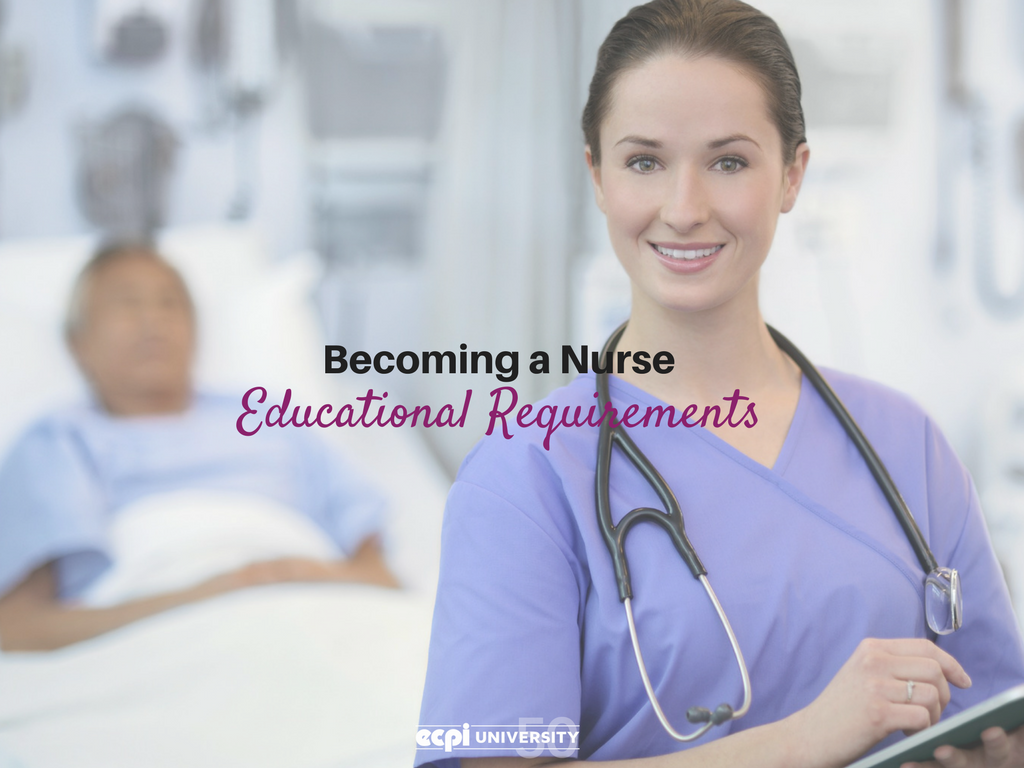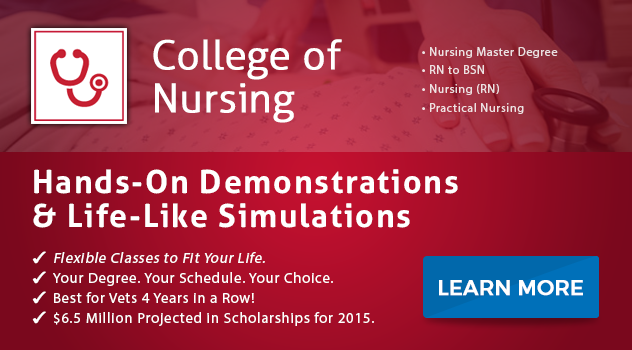Educational Requirements to be a Registered Nurse (RN)
Becoming a registered nurse (RN) takes study and practical experience. The work of an RN can be incredibly rewarding, but also labor-intensive. Let's look at what it takes to become a registered nurse.
Educational Requirements
There are three main ways to become an RN. You can earn a bachelor's degree, an associate degree or a diploma in nursing. Graduating from any of these programs will allow you to be eligible to get a license and gain entry-level employment as an RN.
Bachelor's Degree
This is the preferred standard for professional nurses. The program can last four years or more, but with accelerated programs can be accomplished in as little as 2.5 years, during which time students are taught what their duties will be as a nurse. They will focus on human development and behavioral sciences which are used in the profession.
The first half of the program focuses on nursing basics and includes courses on physiology, organic chemistry, and psychology. The next half is devoted to more practical learning. This includes learning about pediatrics, chronic illness, and mental health issues. Students are frequently taken on tours of real health care facilities so they can observe professional RNs going about their work.
Associate Degree
An associate degree in nursing can take two years, or less if attending an accelerated program. The coursework focuses on the more technical applications of nursing, so classes often take place in clinical settings. An associate degree holder can choose to work as an RN for a few years before pursuing a bachelor's degree.
Nursing License
Once you've received your degree in nursing, the next step is to obtain licensure from your state to become a registered nurse. In order to do so, you must pass the National Council Licensure Examination Registered Nurse (NCLEX) examination before being allowed to join a healthcare facility in a professional capacity. The exam tests candidates on four broad subjects, namely psychosocial, physiological integrity, healthcare environment safety, and health promotion. There are some states which require nurses to take the exam at intervals to maintain the license's legitimacy.
Becoming a Successful RN
Merely deciding to do a nursing course is no guarantee that you will go on to become a professional nurse. Your outcome will depend on your own effort and hard work. The following points form a good roadmap for becoming a registered nurse:
1. Pick a Good School
Make sure that the school you choose has a solid reputation and a record of accomplishment for producing RNs who go on to find a place in good hospitals and healthcare facilities. A school that is not accredited, stuffs too many students in a single class, or has students dropping out of the course all year long is a bad choice. You might get a nursing degree, but it will likely not be worth much in the professional world.
2. Start Waking Early
An RN's shift starts early in the morning, and your body needs to become used to starting the day much earlier. Try to develop the habit of falling asleep early to wake up as soon as possible, until it becomes a matter of routine. Nothing gets in the way of doing your duties as an RN like being tired and sleepy.
3. Get Practical Experience
Being an RN requires you to know how to do many complicated procedures by hand. Becoming good at such procedures will take more than book learning. Grab every chance you can get to gain practical experience by helping out at hospitals, and learn from professional nurses how to dress wounds, read hospital machines, perform basic surgical operations, and interact with patients.
4. Become a Team player
An RN's work always involves being part of the hospital staff. You will be one of several professionals tasked with safeguarding the lives of patients. In order to do so, everyone on the team needs to be on the same page and to get along with each other. Antagonizing your fellow nurses or the doctors could derail you from achieving your goal--and worse, could affect a patient's health.
5. Become Adaptable
An RN's work can often lead to unexpected situations. You will have to learn to deal with patients whose health may deteriorate suddenly and come up with an on-the-spot plan to deal with the situation.
Are you interested in becoming a registered nurse (RN)?
If you want to earn your Associate of Applied Science in Nursing, consider ECPI University for your education. With accelerated learning and year-round classes, you could earn your nursing degree sooner. For more information, contact an admissions advisor today.
It could be the Best Decision You Ever Make!
DISCLAIMER – ECPI University makes no claim, warranty, or guarantee as to actual employability or earning potential to current, past or future students or graduates of any educational program we offer. The ECPI University website is published for informational purposes only. Every effort is made to ensure the accuracy of information contained on the ECPI.edu domain; however, no warranty of accuracy is made. No contractual rights, either expressed or implied, are created by its content.
For more information about ECPI University or any of our programs click here: http://www.ecpi.edu/ or http://ow.ly/Ca1ya.



